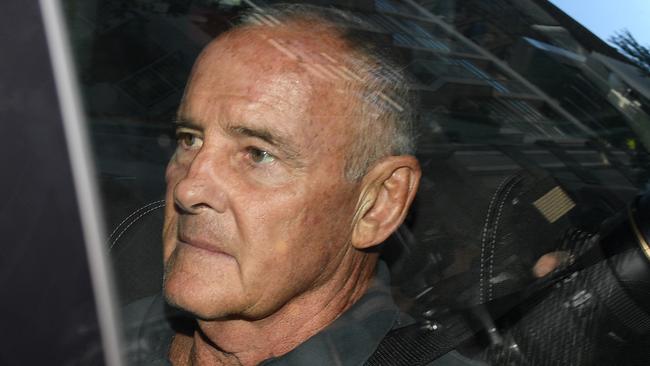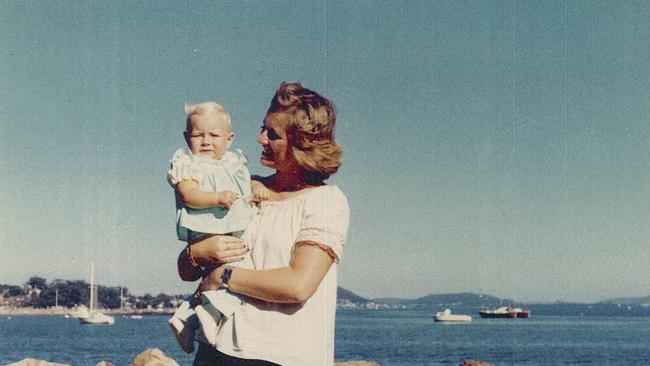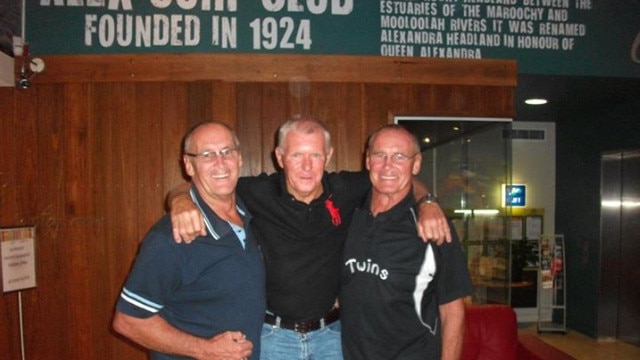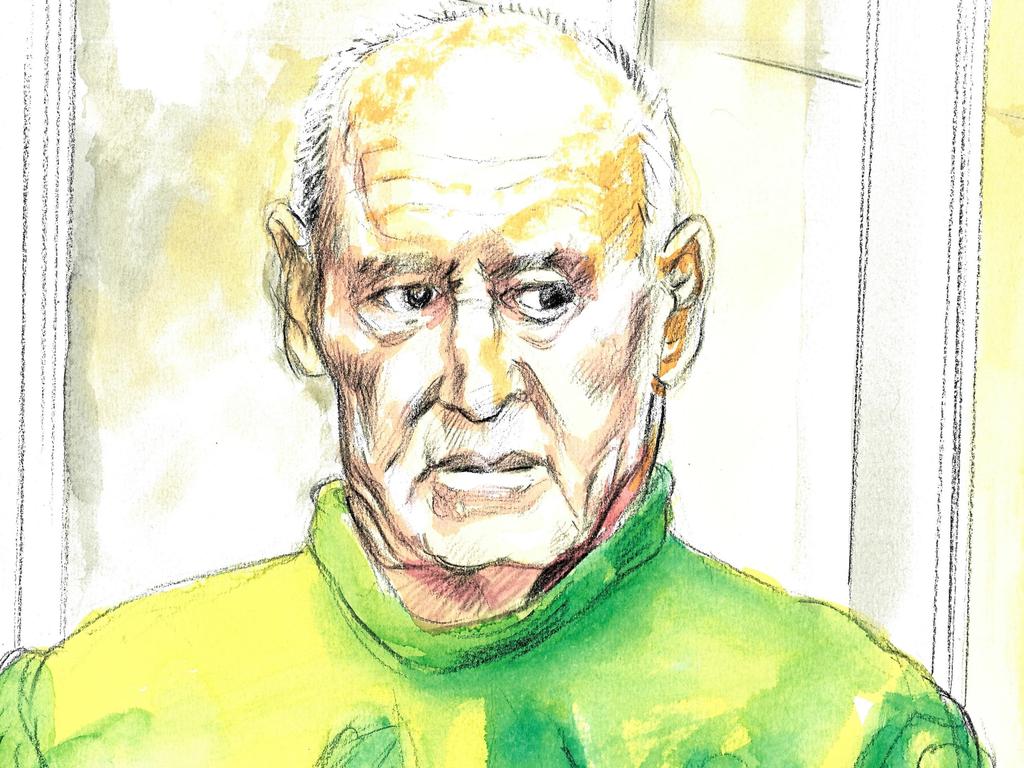Chris Dawson asks High Court to quash his conviction for murdering his wife, Lyn
Convicted wife killer Chris Dawson has asked the High Court to quash his murder conviction and order a new trial, claiming he suffered a ‘significant forensic disadvantage’.

Convicted wife killer Chris Dawson has asked the High Court to quash his murder conviction and order a new trial, claiming he suffered a “significant forensic disadvantage” due to witnesses dying and records being lost over time.
Lawyers for Dawson say in documents lodged in the nation’s highest court this month that the NSW Court of Criminal Appeal made a series of errors when it upheld experienced trial judge Ian Harrison’s guilty verdict.
The NSW appeals court should have declared a mistrial because Justice Harrison failed to find the former teacher and star footballer suffered a significant disadvantage in a case involving a 40-year delay, the documents state.

Dawson’s wife Lyn – now known by her pre-marriage name Simms at her family’s request – was 33 when she vanished from Bayview on Sydney’s northern beaches in 1982, leaving behind two girls, then aged four and two.
The disappearance remained unsolved before The Australian’s investigative podcast The Teacher’s Pet forensically examined the case and brought it to international attention in 2018.
A long-time police suspect, Dawson was charged with Ms Simms’ murder in December 2018 and was convicted by Justice Harrison in 2022.
Barristers Phillip Boulten SC and Claire Wasley, jointly representing Dawson, have now filed an application to the High Court for special leave to appeal the murder conviction.
One of the people put forward by Dawson’s lawyers in the application as a key witness is Sue Butlin, who is said to have claimed she spotted Lyn at a fruit shop at Kulnura on the NSW Central Coast after she disappeared.
“The first homicide investigation was terminated because the police were advised that the prospects of a conviction were poor given that a witness, Sue Butlin, had reported seeing Ms Dawson after 9 January 1982,” the appeal documents state.
“By the time of the trial, significant witnesses had died (including Sue Butlin), the vast majority of the police documents from the first homicide investigation were lost, as were other records, including Bankcard records that suggested that (Lyn) may well have used the Bankcard after 9 January 1982.”
Police never spoke to or took a statement from Ms Butlin, whose name first appeared in police files when Dawson was interviewed by homicide detectives in 1991 and said a “friend of mine and Lyn’s said she’d seen Lyn on the Central Coast”.

Ms Butlin’s husband Ray was a long time friend of Dawson and his twin brother Paul, and at a 2003 inquest suggested the purported sighting could have been an exaggeration or distortion.
If she had “seen somebody that may have been of like appearance to Lyn – and she knew Lyn extremely well – she may have wanted herself to see Lyn, it would put her in a situation where she would be at the centre of attention”, Mr Butlin said.
“Chris and Paul to Sue were more or less stars. She looked up to them quite a bit.”
The appeal also cites police delays in taking statements from Dawson’s co-workers at Northbridge Baths, where he claimed Lyn phoned him and said she needed “time away”.
Phone and employment records that could have supported his version of events, and evidence related to other purported sightings, were also unavailable.
The High Court appeal, if successful, could have ramifications for other murder cases, in particular cold cases that commonly involve police mistakes, missed opportunities and lost records.
To bolster their argument that they should be granted leave to appeal, Dawson’s lawyers say the issue of forensic disadvantage has national impacts and that his case could be used to clarify the law.
The High Court has been asked to consider what “suffering a forensic disadvantage due to delay” means, and how an appellate court should take that disadvantage into account when considering if a verdict is unreasonable.
Dawson’s murder trial was held without a jury at his request, and Justice Harrison sentenced him to 24 years’ jail, to serve a minimum of 18 years.
The sentence means Dawson, now 76, will almost certainly die in jail unless he can overturn the conviction.
Mr Boulten previously represented Dawson in failed attempts to secure a permanent stay of proceedings to avoid going to trial.
Dawson was represented at the trial by barrister Pauline David, who is now a NSW District Court judge, and Sydney solicitor Greg Walsh.
Justice Julie Ward, the president of the NSW Court of Appeal, and Justices Anthony Payne and Christine Adamson unanimously dismissed his appeal against his murder conviction in June 2024.
NSW laws state if a court is satisfied a defendant has suffered a significant forensic disadvantage due to delay, the court “must inform the jury of the nature of that disadvantage and the need to take that disadvantage into account when considering the evidence”.
Chris and Paul Dawson were Sydney celebrities, playing rugby union for Eastern Suburbs together before switching to play league for the Newtown Jets. Both became teachers.
Evidence gathered by police and The Teacher’s Pet suggests they used their positions of authority to conduct sexual relationships with schoolgirls.
Chris Dawson murdered Lyn to replace her with a teenage girl who had previously been one of his students and the family’s babysitter, Justice Harrison found.
He has separately been convicted and sentenced to three years’ jail for unlawful sex with the underage student, whom he married and had a child with. Ms Wasley represented Dawson at that trial.





